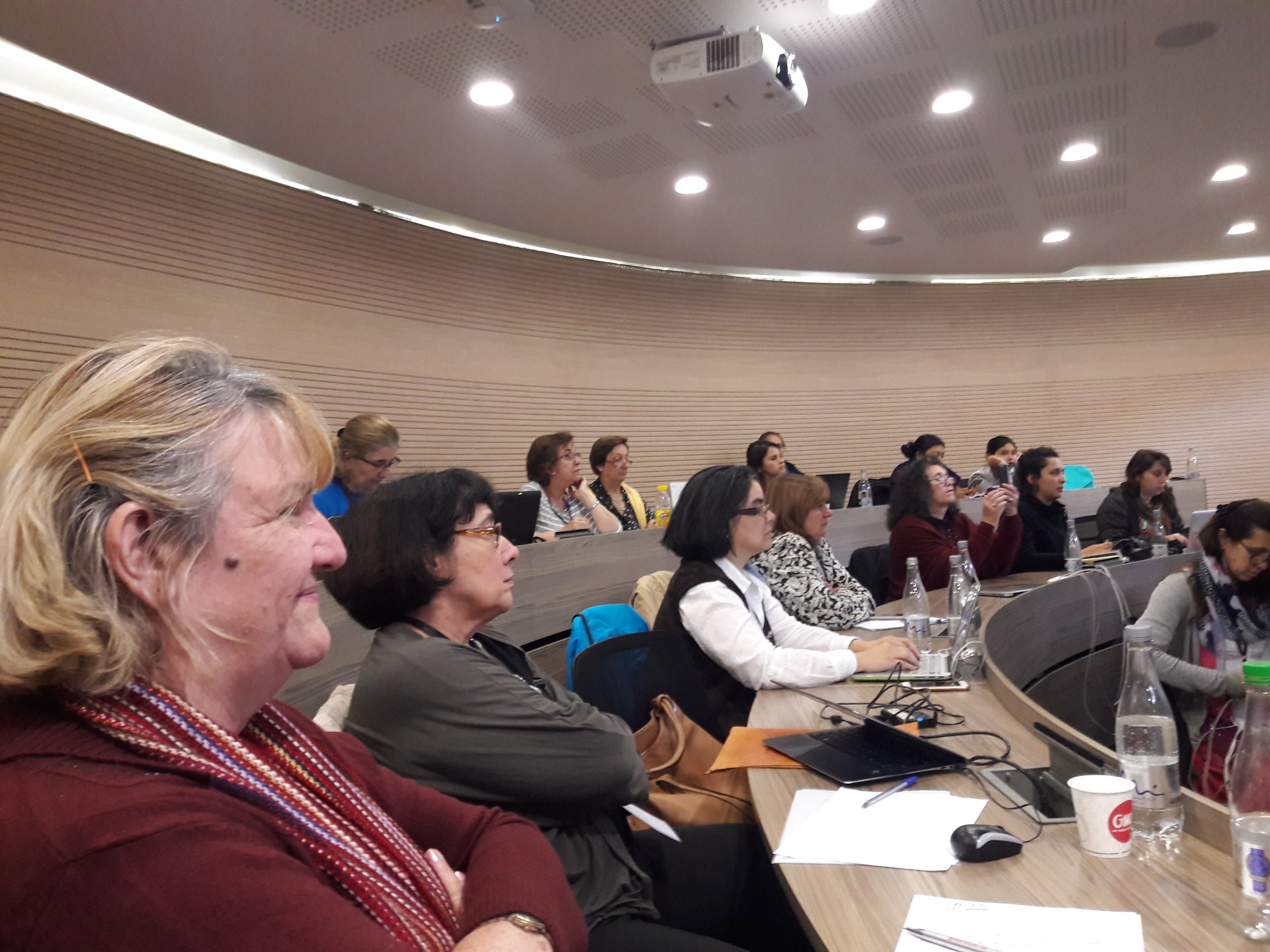On November 20 to 24, 2017, two important events took place at the University of Los Andes, Bogotá, Colombia : “Professional Skills Workshop for Young People in Science and Engineering” and a regional meeting entitled “A Global Approach to the Gender Gap in Mathematical and Natural Sciences: How to Measure It?”

Lilliam Álvarez Díaz * and Karla Rodríguez **
* Cuban Academy of Sciences and Regional Committee ICSU-ROLAC
** ICSU-ROLAC Office, El Salvador
Two important events took place at the University of Los Andes, Bogotá, Colombia from November 20 to 24, 2017. The first one was entitled “Professional Skills Workshop for Young People in Science and Engineering” which served as a continuity to three previous ones that took place from the year 2014 in Puebla, Cuernavaca and Buenos Aires and their objective has been to provide tools to those who are beginning a career in science or engineering for a good professional development with a gender perspective.
It was indeed a very fruitful workshop that allowed the exchange of experiences of about 60 young Colombian scientists, some already working as researchers, others starting as teachers and postgraduate students of very diverse university. The already doctors, high-level scientists from several countries in Latin America and from Colombia, had the opportunity to contribute their life trajectories and accumulated knowledge, especially in transmitting how they managed to be successful women in the exact and natural sciences, despite to live and grow professionally in patriarchal, macho societies, some with explicit policies of promotion and protection of women, and others without such policies.
The second part of the meeting was dedicated specifically to the regional meeting for Latin America, of the ICSU-IMU project entitled “A Global Approach to the Gender Gap in Mathematical and Natural Sciences: How to Measure It,” This project started its activities in 2017 and has had several regional meetings, one in Africa, another in Asia-Pacific and this third in our LAC region which was held in Bogotá. This project is new and will be central in the work of ICSU and other unions. It aims to evaluate the gender situation in science worldwide, to propose lists of good practices that contribute to greater equity (See more in the annex below) .
The presentations shown in the scientific program displayed a regional overview that ranges from information on policies, good practices, concrete actions, statistics, assessments that contributed a kind of “state of the art” of the situation of women in the natural sciences and in Mathematics in our national contexts.
Some titles of the presentations that illustrate the topics discussed and their authors were the following:
The Latin American Workshop associated with this project also had as its central point the evaluation of a questionnaire or survey that will be sent and executed by the American Institute of Physics of the United States with the objective of measuring the gender gaps in scientific institutions, universities, academies of all the world. A rigorous debate was held with the text of each survey question, changes were made, additions, all with a constructive vision and from the experiences of the prominent Latin American experts who participated in the workshop. As of April 2018, the survey will be carried out on a global scale. The link to consult the survey is:
By 2018, several activities will be planned to follow up on gender, natural sciences and mathematics, such as:
Annex
The Gender Gap in Science: A Global Approach to the Gender Gap in Mathematical and Natural Sciences: How to Measure It, How to Reduce It?
Gender Gap in sciences and mathematics fields is not a new issue. Over the past few
decades, although there is a better awareness of this issue, as well as many initiatives to improve the numbers of female scientists in various field, the gap between males and females still exists. Also, existing data on participation of women in the mathematical and natural sciences is scattered, outdated, and inconsistent across regions and research fields.
The project will provide evidence to support data-informed decisions on science policy.
The Gender Gap in Science : A Global Approach to the Gender Gap in Mathematical and Natural Sciences: How to Measure It, How to Reduce It? Project has been approved by the International Council for Science (ICSU) for the period 2017-2019. It is an interdisciplinary and international project.
Objectives:
To echo the importance of promoting gender equality and empowering all women and girls, The UN’s Sustainable Development Goal No. 5 (“Achieve gender equality and empower all women and girls”), the project intends to provide policy makers with evidence-based research results via three tasks. The three tasks to be completed during these 3-year grant period are as follows,
(bibliographic) study on publication patterns will be investigated in order to provide solid
evidence and insightful suggestions for policies on gender and publications.